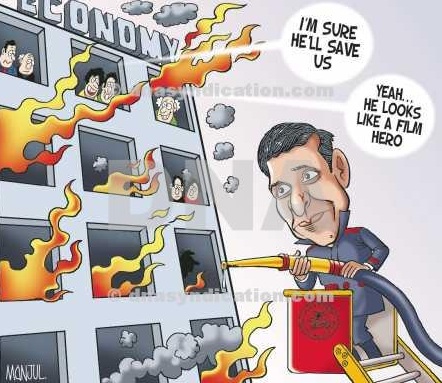Victor Mallet writes: India’s government has signaled it will remove control of interest rates from the central bank, in a controversial plan that has been attacked by some economists and bankers as a threat to independent monetary policy but welcomed by others as an overdue modernization. The finance ministry proposal is the latest salvo in a long struggle between successive governments and central bank chiefs over the need to boost economic growth on the one hand and the urgency of curbing India’s consistently high inflation on the other. The 188page draft Indian Financial Code — produced over the past India moves to reduce central bank powers on interest rates for four years by the financial sector legislative reforms commission and modified by the government after public feedback — envisages a seven person monetary policy committee, with four members appointed by the central government and three from the Reserve Bank of India. Under the present system, the RBI governor — Raghuram Rajan, the former International Monetary Fund chief economist — is appointed by the government and is ultimately answerable to the finance minister of the day. In practice, however, he controls monetary policy and has veto power over the existing advisory committee of RBI members and outside appointees that sets rates.
Some experts welcomed the draft code, including the provision for an MPC, and said it could even enhance the central bank’s influence over monetary policy given the absolute legal power over the RBI currently enjoyed by the finance ministry.
“Anyone who says the Indian Financial Code is taking power away from the governor is crazy . . . We should absolutely not make a fetish about having a powerful governor,” said Ajay Shah, professor at the National Institute for Public Finance and Policy, the research institution. Prof Shah said the current system was opaque and open to abuse through negotiated deals between the RBI and the finance ministry, and he dismissed as “public relations” the suggestion that Mr Rajan was running a tighter monetary policy than the government wanted.
Mr Rajan, he added, was doing the bidding of Prime Minister Narendra Modi in keeping the rupee strong and conducting the “most intensive exchange rate policy in the past 20 years”.
Under the proposed code, it would remain the responsibility of the RBI to ensure that inflation targets are met, even though central government members would have a majority of the votes on the MPC. “For the RBI to be accountable without having a majority in the MPC could eventually compromise the efficacy and credibility of the central bank, and hence we do not view this as a mediumterm positive,” Nomura’s analysts said. Rajeev Malik, senior economist at broker CLSA, called the MPC proposal “disappointing” and said it appeared to reflect insecurity over monetary policy rather than the rumoured bad blood between members of the government and Mr Rajan.

